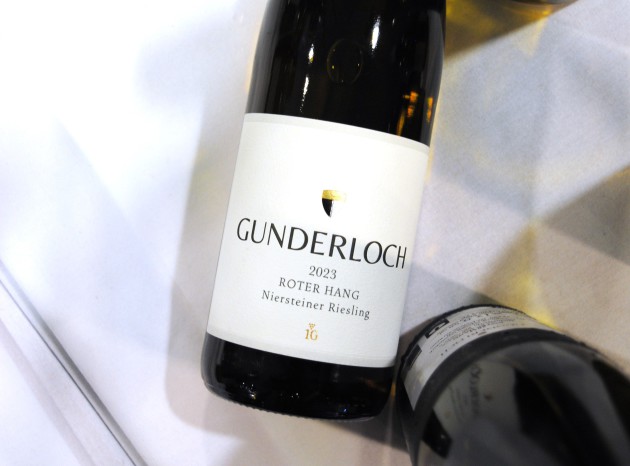
From gelato to Gunderloch – Liberty hits a high note at autumn tasting
An amped up Tom Platt, CEO of Liberty Wines, was keen to share his optimism this week as the trade steams ahead into the last months of 2024, with a particular focus on a handful of new Italian wines and a “significantly developed” Spain category striking a chord with visitors at Tuesday's (17 September) autumn tasting.
Eager to stress that the right “service, support, quality and choice” will lead consumers to spend this autumn, Platt noted that Liberty overall is in a “very strong place… despite the market being pretty volatile and hard to predict”.
In particular, he highlighted the business’s inaugural indie focused off-trade report. Yet to be released in full, a snippet shared with Harpers revealed that indie merchant sales are up 25% since 2019, whereas supermarkets are only up 8%. “This is because indies and the premium on-trade engage consumers and make it worth them spending on good wine,” Platt said.
Fresh off Liberty’s win for IWC Italian Merchant of the Year, the company is now aiming to continue to provide interest for both indie retail and on-trade lists with three new Italian names.
The most innovative of the three to be shown on Tuesday was Mura Mura, a collaboration between two friends who turned their Turin-based ice cream company Grom into an international brand. The pair have since transferred the same approach to their gelato-destined fruit production into wine and now have 10ha on an estate in Costigiole d’Asti (plus vineyards in Barbaresco and Serralunga D’alba).
“We’ve been following them for a couple of years. It’s one of the most exciting wine stories to emerge in Italy for at least a decade,” Platt said.
Also from Italy is Tenuta Mazzolino, a 20ha organic estate on the hills of Oltrepò Pavese, and Sicily’s Sebastiano and Serena Vinci of Mecori, which produces a wine made from Nerello Mascalese and Nerello Cappuccio.
The business has also seen a lot of changes in the Spain category recently. Key brands such as Izadi, El Coto and Lan have been stalwarts of Liberty's offering in Rioja for some time. Now, the business is building on those foundations by taking on the likes of Telmo Rodriguez's Lanzaga project.
“It’s a hugely exciting area that has been bubbling away for years. Spain has so much amazing vineyard material, which these producers continue to preserve, so we are incredibly excited to be working with Rodriguez's project, which takes a Burgundy approach. The wines are really made in the vineyard – strikingly good wines, incredibly vibrant,” Platt said.
Elsewhere, Burgundy continues to see “incredible demand” despite continued price increases, driven by Jean Claude Boisset and Grégory Patriat. Liberty has also recently been appointed the exclusive distributor in the UK and Ireland for Gunderloch, one of the Rheinhessen’s most respected producers.
Aside from these additions, Platt sounds a note of caution over the looming end of the duty easement. He called this “a terrible idea, which will raise no additional revenue for the government (and may well reduce duty receipts) and offers no benefit to the wine consumer or wider society”.
He also raised a pressing question which increasingly accompanies discussions of the new duty regime. The question is: ‘Why don’t winemakers just produce wines with lower alcohol?’.
The answer, says Platt, is that “The site-specific wines we sell are not made with a specific abv in mind – their abv is a result of grape, site and climate. Gunderloch’s ‘Rothenberg’ Riesling Spätlese 2022 is not a better wine than Mura Mura’s ‘Starderi’ Barbaresco 2021 because it is 8%. They are both high quality but inherently different. It is these differences we and our customers need to communicate to sell better wine, particularly as the volume of wine drunk declines. Taxing wine by abv undermines this,” he concluded.






